Paul Brett - Interview
by Andrew Twambley
published: 14 / 2 / 2021
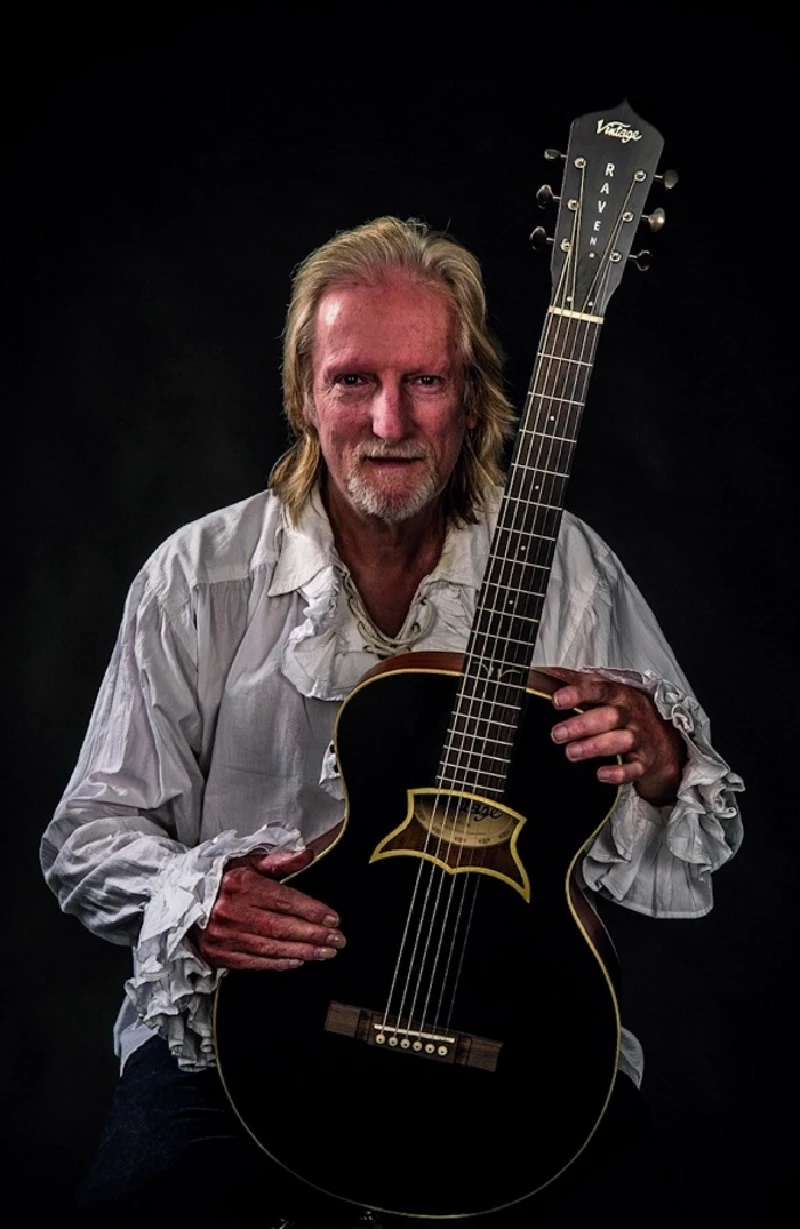
intro
Guitarists' guitarist Paul Brett tells Andrew Twambley about his colourful life, jamming with Hendrix and recording with many legends.
Paul Brett may not be a household name, but has been making music since the early sixties. Despite being associated with various first-rate bands, the guitar maestro was also the "sideman of choice" in the 60s and 70s - a kind of early Earl Slick. Pennyblackmusic met up with him to talk about his new 95-track anthology "Stone Survivor", released on Cherry Red Records and covering Paul's first 55 years in the music business. We also discussed him threatening to throw Marc Bolan off Brighton Pier, his jamming with Hendrix and his diddling Malcolm McLaren out of a signed copy of Never Mind The Bollocks. PB: No disrespect intended, but you've been around a long. How did your 55-year anthology come about? Paul: Out of the blue, really. I received an email from [Cherry Red director] John Reed last year, asking me if I wanted to sign my catalogue to Cherry Red. It seemed like a good idea as Cherry Red has a great reputation for releasing the kind of music I have been involved with over the years. John further suggested an anthology containing a four-CD set which would cover tracks from the sixties until now. I liked the idea, as I also had quite a few unreleased recordings that I had made with various bands I had played with, such as SW4, The Union, Tintern Abbey and Paul Brett's Sage. The track listing for the CDs is extremely comprehensive, covering many different styles and genres. PB: The set starts with some recordings made when you were a mere youth. How did you first get involved with the stringed beast? Paul: My metalwork teacher, Ron Carter, played guitar in a semi-pro dance band and instead of getting me to make copper ashtrays like all the other kids, he showed me how to make a tremolo unit and taught me some basic chords. I simply caught the bug. That was a few years ago. PB: Paul Brett's Sage seems to have been a vital part of your career. Who was involved in that project? Paul: As a session guitarist I was very much in demand to guest on many records. I was invited to play on Fire's 'The Magic Shoemaker' which is now a legendary psychedelic album fetching hundreds of pounds in the vinyl collector's market. I actually joined the band too for some live shows. The line up was Dave Lambert, Bob Voice, Dick Duffall and me - and Dave Cousins of The Strawbs also guested on banjo. I had for a long time wanted to start my own band, so Bob Voice and I worked on an acoustic set, and that led to us forming Paul Brett's Sage. When Fire split, Dick joined us and Dave Lambert joined the Strawbs. We invited a very talented flautist and sax player by the name of Nicky Higgenbottom to complete the Sage line-up. We sent some demos to Cyril Stapleton who was head of A&R at Pye Records and he immediately signed the band to a three-album deal. I owe a lot to Cyril. He produced the first Sage album, and at the time he was also one of the UK's leading Big Band leaders. PB: During the 1960s you were the "sideman of choice" for countless artists. Who did you most enjoy playing with? Paul: Wow, that's a tough one. My first professional gig was to follow Jimmy Page into Neil Christian and The Crusaders, which also featured Ritchie Blackmore. From there I played with quite a few bands on a gig-by-gig basis. Over a few years I did sessions for The Strawbs, Roy Harper, Al Stewart, Ralph McTell, Elmer Gantry's Velvet Opera, Status Quo, Barclay James Harvest, The Overlanders [who had a chart-topping hit with 'Michelle'], Tintern Abbey and many other artistes and bands. I never really thought about who I actually enjoyed playing with the most, as they all had merits and I was always learning. I never restricted my playing to one particular style - I wanted to learn as many styles and techniques as possible, to enhance my own understanding of the guitar and what it could actually do. I did have a very soft spot for the time I played in Lonnie Donegan's group. Lon started it all off over here with the skiffle hit of Leadbelly's 'Rock Island Line'. Thanks, Lon, from all of us! PB: In 1974 you got into the 12-string guitar and are now widely regarded as one of the world's finest players. How did that come about and how often do you record with it? Paul: My love for 12-string came from hearing the British Blues 12-string legend Johnny Joyce playing Leadbelly and Blind Willie McTell blues. At the time acoustic-based clubs never had PA systems and therefore it was truly acoustic. Johnny could fill the room with his big old Guild F212 and I fell in love with the 'twelver'. When Elmer left the Velvet Opera, I got Johnny into the band. We also formed an acoustic duo and Johnny taught me some basic picking styles on the 12-string. It was a totally different technique to 6-string playing, but I persevered and finally designed my own technique of playing. I composed a suite for solo 12-string called 'Earth Birth' which led to RCA signing me for a four-album deal. PB: People of a certain age will recall the name of K-Tel Records with a certain 70s nostalgia. You had massive K-Tel hit with 'Romantic Guitar'. How was that experience? Paul: It was interesting, to put it mildly, and led to a new experience. I was approached by K-Tel to record an album with a large orchestra made up of players from the London Symphony Orchestra. It was while I was still with RCA, who agreed to let me do it. In a way, I wish I hadn't. I had by that time always written my own songs and instrumentals and was doing quite well. The brief for this album was 16 popular songs in the Romantic vein. I did it, everyone was pleased and it charted. I felt a little disappointed when they sent me a royalty cheque for less than £20. In the end, after a lengthy legal battle, I received fair payment and gold and silver discs for recognition of sales in excess of 100,000 copies, plus ownership of the recordings. The positive I took from this experience was that I was one of the few solo UK guitarists to actually have a chart hit and a gold disc. PB: You were heavily involved with the Crazy World of Arthur Brown, the self-proclaimed "God of Hellfire". I understand that relationship led you to being arrested in France at gunpoint and labelled a "subversive"! Paul: Ha ha, I played on and off with Arthur for a number of years. First in the UK with The Arthur Brown Union, then in France and Spain, then back in the UK when I did his first single 'The Devil's Grip'. He was and still is a great singer and live performer. He was cited by the French Police as being an instigator of the student riots over there in 1968. I doubt very much if that was true, but the French authorities are a strange breed. About 10 years later I was touring France to promote a new album 'Phoenix Future'. One morning we were leaving our apartment in Belfort and were arrested at gunpoint by the police. We were taken to an isolated building out of town in the woods and held all day, no reason given. I finally pried out of one of them why. I was listed as a member of Arthur's band at the time of the riots and they were just checking my papers, they said. He rattled on about a work permit, but as we were in the Common Market at the time, this was not a criteria and the French record company Arcane had sorted all the paperwork anyway. I pointed out to the guy we were in the Common Market and he just shrugged his shoulders and said "What's that?" We were released about 5pm, no charge, just in time to do the gig in Belfort in the evening. C'est la vie! PB: You do have a reputation as someone not to be pushed around. Didn't you once threaten to throw Marc Bolan into the sea at Brighton? Paul: I was brought up in a no-nonsense area of London and coming from a military family background, I have always stood my ground. There are many instances in life where you either stand or fall. My family preferred to stand and it has not done me any harm in following their beliefs. When I first came across Marc he was just starting with Tyrannosaurus Rex as an acoustic duo. I was with Elmer Gantry's Velvet Opera at the time, and they had a chart hit with a song called Flames, which also featured in the compilation album 'The Rock Machine Turns You On'. Having just travelled down from Manchester to Brighton we wanted to get our equipment onto the Pier Ballroom. When we arrived, Marc was sitting playing his guitar to a couple of nubiles on the back entrance steps. Our roadie asked him kindly to move so we could unload the van and he didn't take any notice. Then I asked him politely to move and he ignored my request, so I gave him a choice: "move or start swimming for shore", or words to that effect. He moved! We met up a few times later and were on good terms. The last time I saw him was at the Weeley Festival when he visited our tour bus, which was a big red London double-decker. I think there is a photo of him and his lady standing in front of it. PB: Help me relive sixties London: is it true that once you'd finished on stage you'd go out jamming at nightclubs into the early hours of the morning, bumping into people like Jimi Hendrix? Paul: London in the sixties was a great place for youth. Everything was new and exciting. The music scene was wide open to creative ideas and there was lots of experimenting happening with different music genres. Electric guitars were the rage, the Pirate radio stations were a Godsend, as was Radio Luxemburg. They would play all sorts of artistes' music which led to many successful careers being launched. That all changed when Wilson's government banned the pirates and the BBC started Radio 1, which became the only national station for pop music. The freedom had gone and what was played on national radio was being controlled by a very few people, which led of course to favouritism given to those companies who could make an arrangements to get their records played. I attended a few parties where you could clearly see a mingling of those who controlled the playlist and those who wished to take advantage of it. There were loads of live gigs all over the country and I played many of them. After the gig, if you were in driving distance of London, there were quite a few late nightclubs where you could go and relax. You could also jam with other musicians who were up for it and yes, I did jam with Hendrix a few times. Strangely, though, he always opted to play bass. I guess that was his form of relaxing, PB: You were an A&R (Artist and Repertoire) man for RCA. Tell me about Andy Summers and not signing The Police. Paul: Ha, Andy, a great guitarist. He was playing a regular gig at The Red Cow in Hammersmith with The Police. It was during the very early punk period and I offered the band to RCA. The powers that be turned them down on the grounds they thought they were too old! I did get Andy on board promoting Aria Guitars, whom I was associated with, having designed two acoustic guitars for them. RCA went for The Adverts instead. A few months later, 'Roxanne' broke into the charts, big time, and the rest is history as The Police became one of the biggest bands in the world. I also got to meet quite a few of RCA's roster artistes at the time, including Elvis Presley. He was playing two shows nightly at the Las Vegas Hilton, at the end of the Strip. Elvis's star had waned considerably by then and his record sales were very low. But his live show was still brilliant. I recall discussing with him the merits of the change in recording techniques that was going on at the time with the constant drive to improve the listening experience for record buyers. I called it "the search for perfection", like CD as opposed to vinyl. Elvis said to me: "if it's perfect, it ain't worth doing!" PB: Legend has it that you own a copy of the Sex Pistols' 'Never Mind The Bollocks' signed by Rotten, Vicious, Jones and Cook. Where, how, what? Paul: Yeah, Malcolm McLaren gave it to me, I guess as a sweetener to sign one of his newer bands to RCA. It was in the Greyhound, a great live music pub in Fulham, one night. I knew Malcolm from earlier as he had a clothes shop in the Kings Road in Chelsea. I never signed the band in question but still have the album somewhere. It's amazing how memorabilia from those days has become so collectable today and the prices being paid by collectors stun me. It's like the vintage guitar market. Some early Gibsons and Fenders that cost a couple of hundred quid new back then are selling for hundreds of thousands of pounds now. Of course, provenance always adds to value and a guitar Clapton owned will always sell for a lot more than the same guitar that an unknown player owned, even if is the exact same model and year. PB: Apart from when coronavirus gets in the way, your partner Michelle Breeze and you organise a sell-out annual acoustic guitar festival in North Wales. How did that come about? Paul: We started the Llyn Guitar Festival in 2010 and ran it yearly until the virus meant we couldn't run it in 2020. The idea was to do a three-day festival out-of-season on the Llyn Peninsula in North Wales, to attract some of the world's best guitarists to play and perform masterclasses to the locals, and to attract people from afar to help the local hotels and B&Bs get some out-of-season clients. We are all geared up to restart the event and will do so when the government gives permission for the venues to reopen. PB: 'Stone Survivor' covers your first 55 years. What comes next? Paul: My anthology is being released by Cherry Red in March and I'm really excited to see and hear the finished product. I have to thank John Read for putting it all together too. And what next? Same as always. Keep creating and recording music while I can and still have the inspiration to do so. We were launching Michelle's new musical drama in 2020 about the life of Elizabeth I. That was cancelled because of the virus so we hope to do that as soon as we are allowed to. It's taken a great amount of time and money to get it to stage-performance level. Michelle wrote the script and designed and made the sets and costumes, and Tom Newman (who produced 'Tubular Bells') and I composed the music. For me, I have my own range of self designed electro-acoustic guitars out across the world via the brilliant Vintage brand. And I'm trying to get a film company to produce my "History of Guitar" idea which starts 3,500 years ago in Egypt and takes us all the way to the present day . PB: That is something for us all to look forward to. Thanks for your time - I feel like I've only scratched the surface here: you're a mine of anecdotes and stories. Until the next time? Paul: Definitely, see you soon.
Band Links:-
https://www.paulbrettguitarist.co.uk/https://en.wikipedia.org/wiki/Paul_Brett
Have a Listen:-
Picture Gallery:-
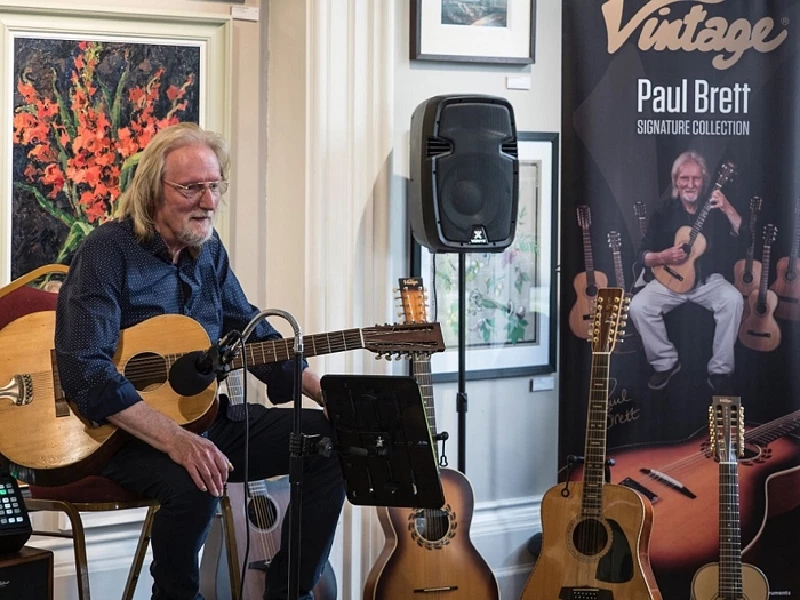
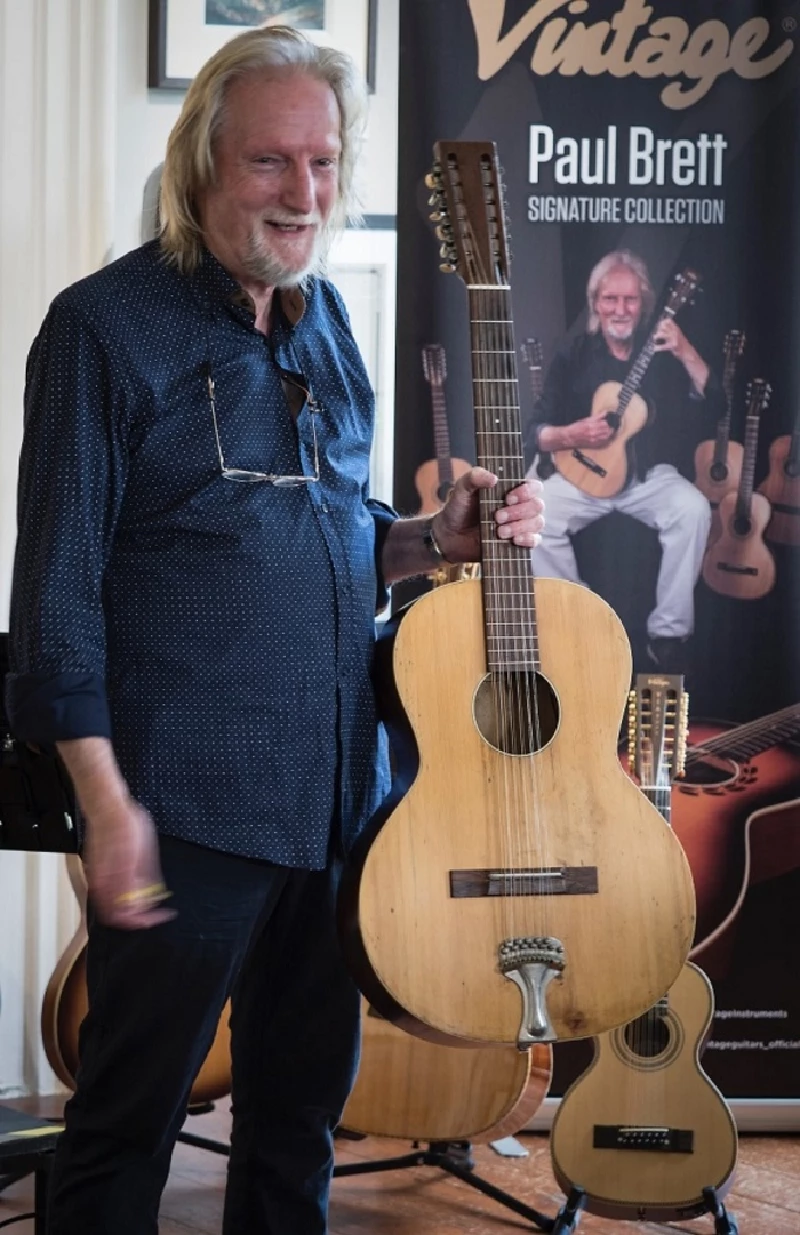
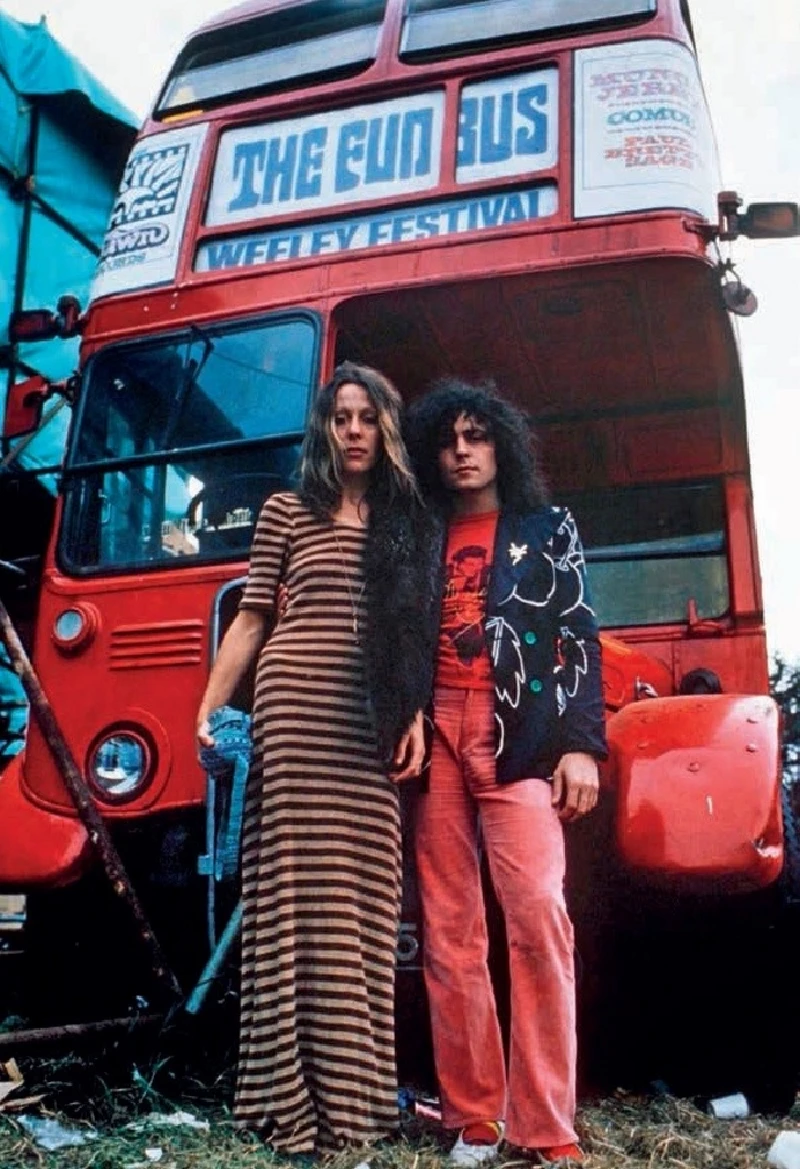
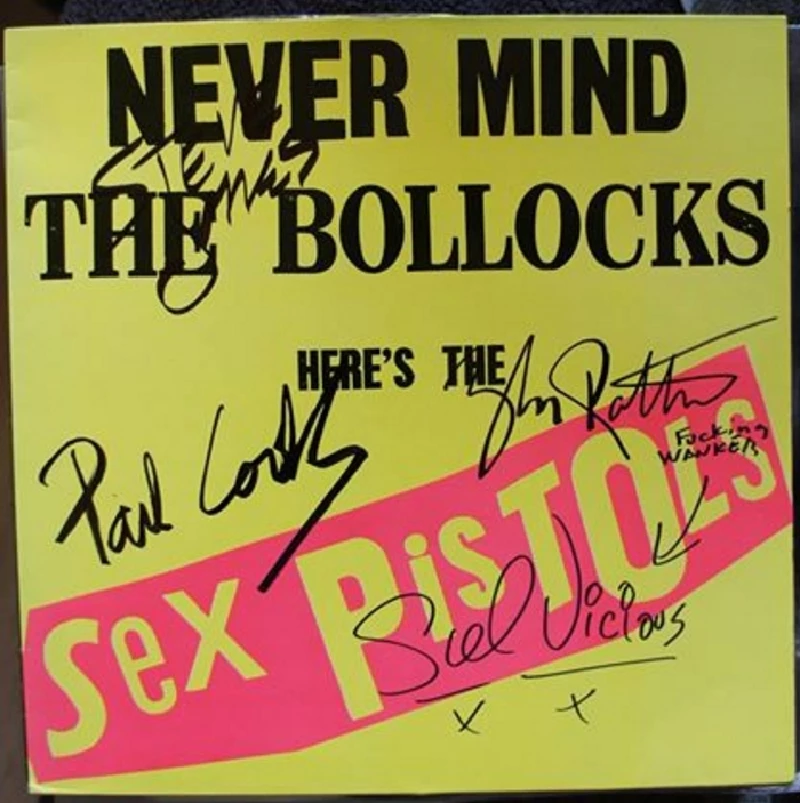
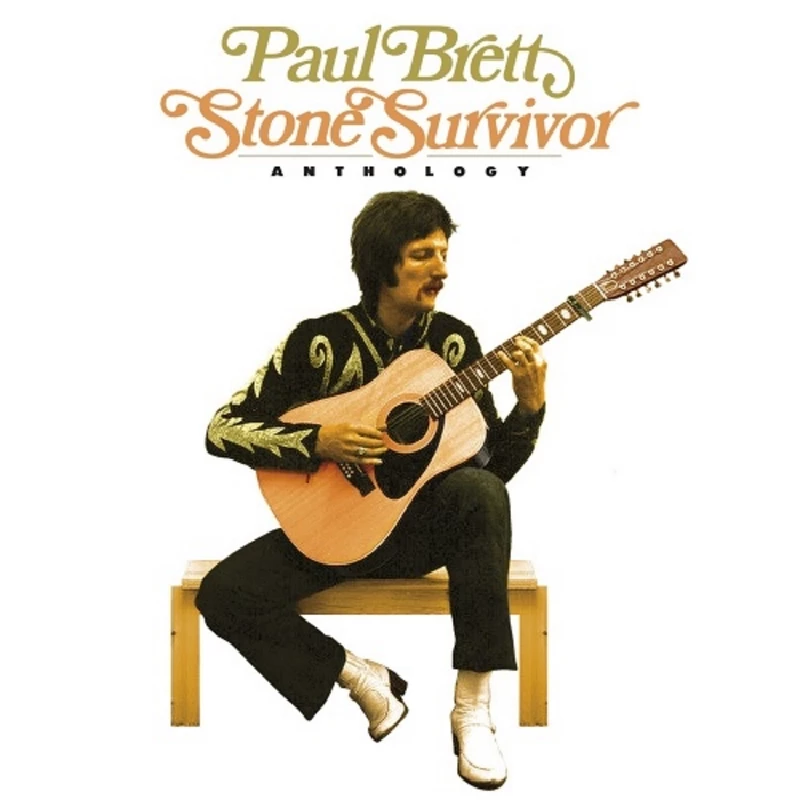
soundcloud
reviews |
|
Stone Survivor - Anthology (2021) |
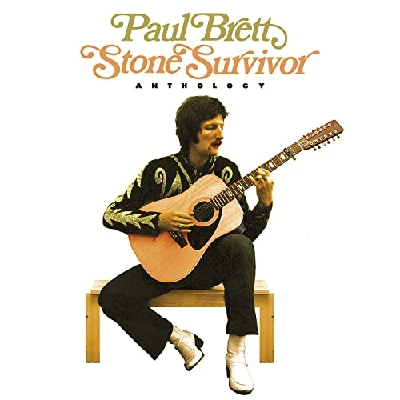
|
| Extensive four CD compilation from session musician and experimental guitarist Paul Brett |
most viewed articles
current edition
Carl Ewens - David Bowie 1964 to 1982 On Track: Every Album, Every SongArmory Show - Interview with Richard Jobson
Bathers - Photoscapes 1
Colin Blunstone - Thalia Hall, Chicago, 16/7/2025
Visor Fest - Valencia, Spain, 26/9/2025...27/9/2025
Billie Eilish - O2 Arena, London, 10/7/2025
Robert Forster - Interview
Loft - Interview
John McKay - Interview
Editorial - July 2025
previous editions
Heavenly - P.U.N.K. Girl EPManic Street Preachers - (Gig of a Lifetime) Millennium Stadium, Cardiff, December 1999
Oasis - Oasis, Earl's Court, London, 1995
Trudie Myerscough-Harris - Interview
Beautiful South - Ten Songs That Made Me Love...
Pixies - Ten Songs That Made Me Love...
Prolapse - Interview
Simon Heavisides - Destiny Stopped Screaming: The Life and Times of Adrian Borland
Paul Clerehugh - Interview
Doris Brendel - Interview
most viewed reviews
current edition
Amy Macdonald - Is This What You've Been Waiting For?Sick Man of Europe - The Sick Man of Europe
Alice Cooper - The Revenge of Alice Cooper
Phew, Erika Kobayashi,, Dieter Moebius - Radium Girls
Davey Woodward - Mumbo in the Jumbo
Lucy Spraggan - Other Sides of the Moon
Blueboy - 2
Cynthia Erivo - I Forgive You
Philip Jeays - Victoria
Lapsley - I'm a Hurricane, I'm a Woman In Love
Pennyblackmusic Regular Contributors
Adrian Janes
Amanda J. Window
Andrew Twambley
Anthony Dhanendran
Benjamin Howarth
Cila Warncke
Daniel Cressey
Darren Aston
Dastardly
Dave Goodwin
Denzil Watson
Dominic B. Simpson
Eoghan Lyng
Fiona Hutchings
Harry Sherriff
Helen Tipping
Jamie Rowland
John Clarkson
Julie Cruickshank
Kimberly Bright
Lisa Torem
Maarten Schiethart